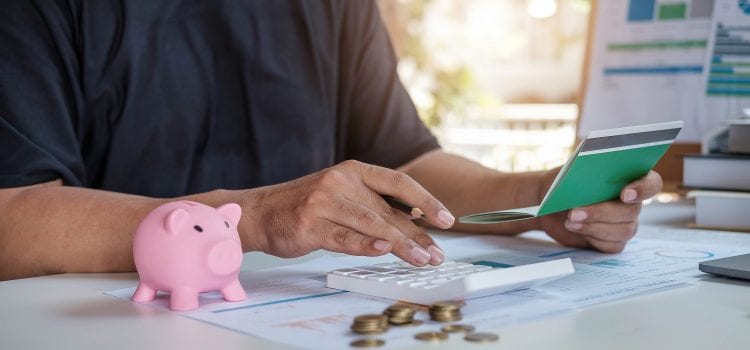Whether or not you can classify your labour as an allowable expense comes down to how you pay yourself from the business, and that depends on what type of business structure you have in place.
As a sole trader, any profits that the business makes are yours to keep after paying tax. That means you aren’t able to reclaim the cost of paying yourself as an expense.
If you run a limited company, you are considered separate from your business, meaning you are able to pay yourself a salary as a company director.
Salaries are eligible as an allowable expense, so you can claim this back on the company tax return and lower your corporation tax bill.
You can also take dividend payments, but these are taken from the company profits, after tax, so the company cannot claim these as an expense.
Paying yourself a dividend through a limited company is one of the most tax-savvy ways to take money out of the business thanks to the lower personal tax that is paid on dividends.
So now, to put allowable expenses into a whole lot more context for you, let’s take it back to the very basics:
What are allowable expenses?
An allowable expense is something that comes at a cost to your business but is not taxable (exempt from being taxed). Allowable expenses are normally things that are essential to the running of the business, i.e., unavoidable costs, hence why they are eligible for tax relief. If you like things in visual form, this video explains allowable expenses for businesses in more detail!
Anything that applies as an allowable expense reduces the business’s taxable profits, and therefore brings your tax bill down.
So, for example, if your business has an annual turnover of £50,000 but you spend £5,000 on allowable expenses each year, you’ll only pay tax on the £45,000.
Common allowable expenses according to official HMRC guidelines include things like:
- Cost of travel – tickets, mileage, fuel, and parking (excluding standard travel to and from work).
- Costs associated to employees – salaries, bonuses, and pension contributions.
- Uniforms and safety clothing (not your everyday work wardrobe).
- Bills including phone bills, utility bills and rent payments.
- Items you buy to resell (e.g., stock and raw materials).
- Advertising and marketing, such as website running costs and business cards.
- Business-related training courses.
It’s worth noting here that if you use the £1,000 tax-free trading allowance, you will not be eligible to claim expenses.
The trading allowance enables a sole trader to earn up to £1,000 in self-employment income tax-free, without needing to submit a Self Assessment return. However, if you use your trading allowance on your tax return, you can’t then claim allowable expenses. It means it’s important to work out all your expenses in advance, so that you can use the one which gives you most tax relief!
What allowable expenses can a freelancer claim for?
There are a number of allowable expenses that freelancers can claim tax relief on, particularly if you spend a great deal of time working from home (which might be now more than ever, post-pandemic).
Allowable expenses when working from home for freelancers include:
- Council tax payments
- Rent or mortgage interest
- Phone/mobile usage (including data)
- Internet connection
- Utilities (heat, electricity, water)
- Property insurance
- Repairs and maintenance of business-related areas of the premises
For things like utility bills, internet, and phone costs, you can only claim for the portion of the expenses that are directly incurred through business use (not personal use).
HMRC leave it down to you to calculate these portions of usage but falsely swaying it in your favour is a risky move as it will spell serious trouble if you were to be investigated at any point.
As a freelancer, you can also claim for things like:
- Stationery (including paper, printer inks, etc)
- Computer software
- Warranties
- Accountant and bookkeeping fees
- Postage costs
- Business travel costs (e.g., vehicle insurance, fuel, parking, tickets, hire charges, hotel rooms, repairs)
- Subcontractors
- Some training courses
- Agency fees
- Insurance premiums
- Some legal and/or financial expenses
- Lease payments
- Bank and credit card charges
- Professional subscriptions
That list is by no means exhaustive either so it’s certainly of great benefit to look into the costs you could be getting relief on.
Hopefully, you’ve found this article useful but when it comes to staying on top of your tax efficiency, you might find it worth speaking to a qualified sole trader accountant. They’ll be best placed to point you in the right direction of what you can and can’t claim as an allowable expense when freelancing.







